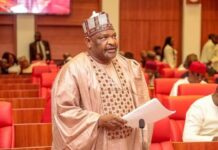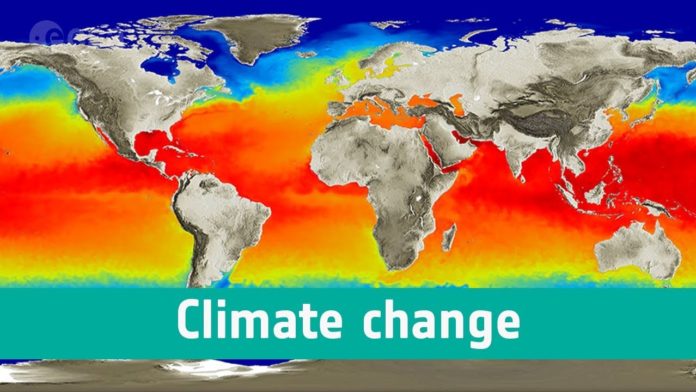World Bank
Four years on from the signing of the Paris Agreement, representatives from over 200 countries will gather in Madrid, Spain, to kick-start the 25th Conference of the Parties to the United Nations Framework Convention on Climate Change (COP 25). It is a key milestone before next year’s critical COP which will take place in Glasgow, by which time countries are expected to come up with more ambitious national targets, known as “Nationally Determined Contributions,” or NDCs.
Through the NDC Support Facility, the Bank Group is helping countries around the world deliver on their NDCs, ranging from support that expands low-carbon transport to innovative GIS mapping of climate risk. It is doing so as a contribution to the NDC Partnership, a coalition of more than 150 countries and international institutions, to mobilize technical and financial resources to accelerate climate action in countries. Here are five snapshots of that work in action:
CHILE
Scaling up clean mobility in Latin American cities gets a boost through the Clean Bus project. The Chilean capital, Santiago, is a frontrunner in the adoption of battery-electric buses in the region, making it a regional champion of the clean public transport transformation in Latin America. The project has also helped mobilize a multi-sectoral community of leaders committed to achieving the region’s climate mitigation goals. Learn more
KYRGYZ REPUBLIC
How has data and the development of a Monitoring, Reporting and Verification system helped different ministries in the Kyrgyz Republic collaborate better? How has the system helped ensure the accountability of climate finance, enabling the country to mobilize climate finance from different sources? And how is quality data helping the Kyrgyz Republic bolster the implementation of its NDC and boost its climate ambition. Learn more
MOROCCO
Moroccans live on the frontlines of climate change. The country’s coastline faces severe erosion with some areas of the north coast already eroding at a rate of 1 meter per year. Other impacts – rising temperatures, reduced rainfall, growing water scarcity, and encroaching sands of the Sahara on oases and fragile ecosystems – are also already taking place. Morocco has mounted a robust response to these challenges working on analytical studies, economic models and capacity building initiatives for cross-sectoral climate policy planning and coordination. The country’s experience of bringing together different ministries and partners for policy planning has been invaluable not only for implementing its own NDC but also for other countries in the region that can benefit from adopting similar platforms to bolster climate action. Learn more
MALI
Through the development of a climate-smart agriculture investment plan in Mali, the country is scaling up adaptation efforts.Developing the plans have also helped to bring on board a wide range of stakeholders from public, private and civil society; improved policymaking and private sector investment in projects; and helped forge strong partnerships across sectors and ministries. Similar investment plans have also been developed in Morocco and Cote D’Ivoire. Learn more
SÃO TOMÉ AND PRÍNCIPE
The island nation of São Tomé and Príncipe is highly vulnerable to floods, coastal erosion and natural disasters and exposed to rising sea levels. By deploying a GIS system, government officials can incorporate climate risks when planning infrastructure such as roads and public buildings, ensuring that they are built at a safe distance from the shoreline. In place since 2018, the platform is transforming the way planning and line ministries collaborate with each another and helping donors identify investment opportunities that support adaptation actions in a variety of areas including those relating to the relocation of communities to safer zones, nature-based adaptation solutions, such as mangrove plantations, and building resilient transport infrastructure.

























